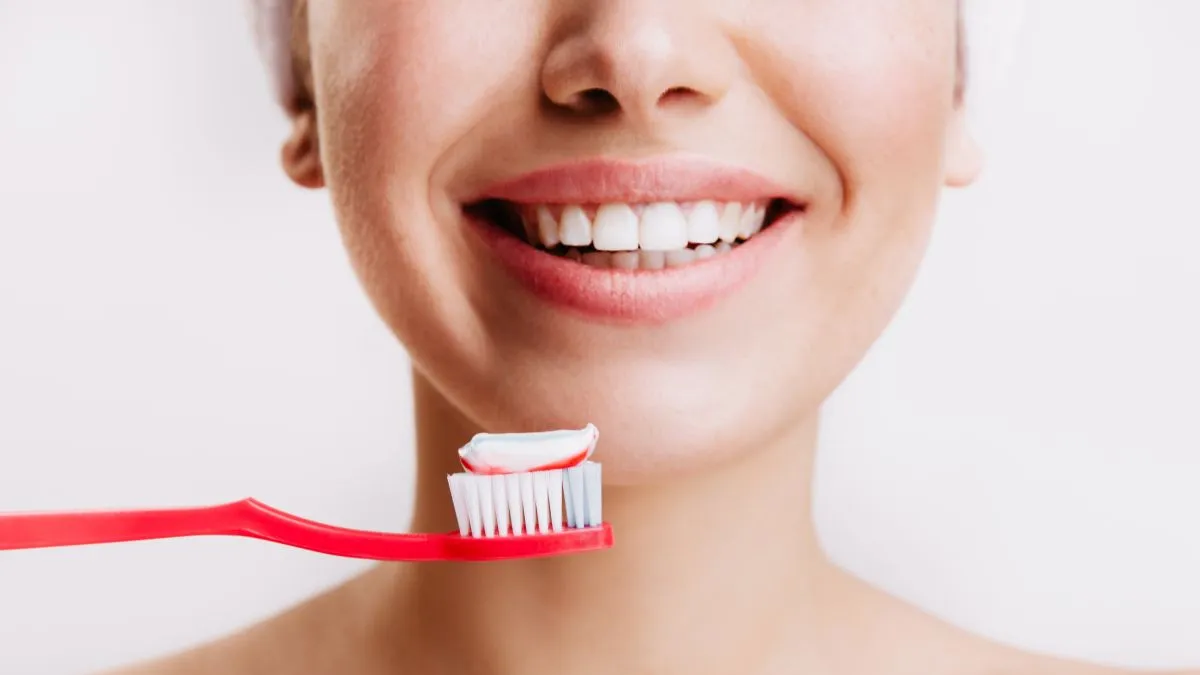
The first thing we do when we wake up is brush our teeth. For many, this is also the last activity of our bed before hitting the bed. We are all aware how important brushing is for our overall oral hygiene and dental care. But what we often overlook is that the toothbrush we are using has a lifespan. It should be changed occasionally. Else, we might unconsciously harm our oral health. In case you are wondering how often we should change our toothbrush, then this article is for you.
Table of Content:-
The editorial team of Only My Health got in touch with Dr Raju Biswas, MDS, Dr R Ahmed Dental College & Hospital Kolkata (West Bengal State Secretary Indian Dental Association) to get a better understanding on this topic.
How Often Should You Change Toothbrush?
“The function of a toothbrush is to keep our teeth clean, and protect them from plague, cavities and decay. In this regard, bristles of a brush play a major role. So we should check our toothbrush’s bristles regularly; if they are worn out and frayed, then it’s an indication that they are not to be used anymore. So ideally, we should change our toothbrush occasionally, every 2 to 3 months,” shares Dr Biswas.
On this note, let us take a look at some other factors which might indicate that our toothbrush needs an upgrade:
- Visible Wear: Frayed and damaged bristles make a toothbrush ineffective.
- After Illness: Germs and bacteria can remain on bristles, and even increase the risk of infections.
- For Children: Kids often use more force while brushing. This may wear out bristles of their toothbrushes faster than adults.
How to Take Care of Your Toothbrush
We should keep our toothbrushes clean at all times. Dr Biswas shares some tips on how to take care of our brushes:
- Don’t share your toothbrush with anyone, not even with your family members.
- After brushing, rinse your toothbrush well with tap water.
- Use a closed container to keep the bristles of your toothbrush clean.
When Should You Change Your Toothbrush?
It is also important to know when your toothbrush needs to be changed. Look out for these signs as indicators:
- Frayed Bristles.
- Loss of Shape.
- Discoloration.
- Reduced Cleaning Efficiency.
Also Read: Electric vs Manual Toothbrush: What Dentists Say About the Myths
Risks of Using One Toothbrush For Too Long
People often feel that using a toothbrush for too long is harmless. But this is a misconception. The lifespan of a toothbrush is 3 to 4 months. Exceeding this timespan may give way to the following oral issues:
- Tooth Decay: Using an old toothbrush may lead to ineffective cleaning. This allows bacteria to grow, leading to cavities.
- Gum Diseases: Prolonged use of a toothbrush can lead to gum diseases and increase the risk of gingivitis and periodontitis.
- Bad Breath: Using one brush for too long can cause persistent bad breath.
The Final Word
We should change our toothbrush every 2-3 months. Prolonged use of a toothbrush can lead to issues like tooth decay, gum diseases and bad breath. Practices like taking care of our brushes, rinsing them well and not sharing with others are also important.
Also watch this video
FAQ
How often do you really need to change your toothbrush?
You should change your toothbrush every three to four months, or sooner if the bristles are frayed or matted.Can I use the same toothbrush for 2 years?
According to the Centers for Disease Control and Prevention (CDC), you should replace a manual toothbrush every three to four months.Can an old toothbrush cause gingivitis?
Frayed toothbrushes are ineffective at clearing away plaque buildup. Eventually, the plaque buildup grows and contributes to gingivitis.
Read Next
Is Urban Living Making You Sick? Expert Shares The Link Between City Life and Autoimmune Disease
How we keep this article up to date:
We work with experts and keep a close eye on the latest in health and wellness. Whenever there is a new research or helpful information, we update our articles with accurate and useful advice.
Current Version
Oct 20, 2025 09:55 IST
Modified By : Chanchal SengarOct 20, 2025 09:55 IST
Published By : Shruti Das